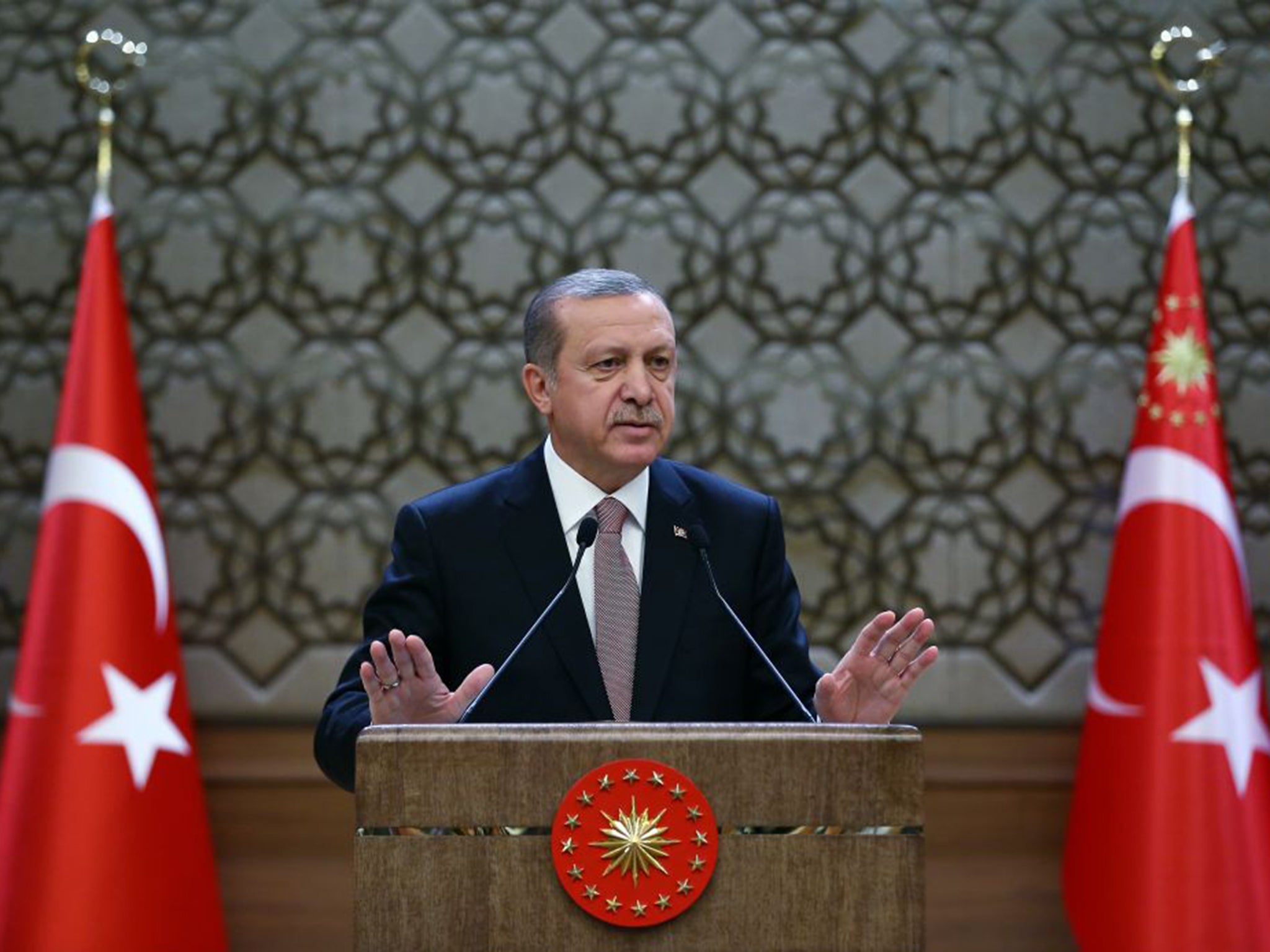The EU is crumbling – and Turkey won't hold it together
Angela Merkel sounded its death knell by opening Germany's borders

Seven years ago José Manuel Barroso, then president of the European Commission, was asked to define the European Union and came up with the definition, “the first non-imperial empire”. If that is the case, the empire is now crumbling.
The death knell was German chancellor Angela Merkel’s declaration, “Wir schaffen das” (Yes, we can), when in a Mother Teresa moment she flung open Germany’s – and by extension, Europe’s doors to the tired, poor and huddled masses who had embarked on an historic exodus from the Middle East. Once the floodgates have been opened, it is difficult to close them again, as a number of European states have learned.
Now the consequences of their high-mindedness have dawned on the Germans and Swedes, they have like other EU states slammed the doors shut and put up the barricades. The EU Commission’s president, Jean-Claude Juncker, has admitted the Schengen system is “partly comatose” and that the single currency will no longer exist if Schengen, “one of the pillars of the construction of Europe”, falls. The Dutch prime minister, Mark Rutte, has also declared, “As we all know from the Roman empire, big empires go down if the borders are not well-protected.”
Unable to defend its own borders, EU’s leaders have in desperation turned to Turkey for help in stopping the flow of refugees and migrants who use the route from Turkey to Greece to reach Europe, estimated at 650,000 so far this year out of a total of 900,000 who have already reached Europe.
Turkey has borne the brunt of sheltering half of some 4 million Syrian refugees at a cost of €8 billion, while Lebanon, Jordan, Iraq and Egypt have sheltered the other half, so Turkey considers it only fair that the EU shares the cost if it is going to act as Europe’s gatekeeper.
What is less palatable, at least for Europe, are the strings attached. Apart from €3 billion in cash, accession talks will be reopened, there will be visa liberalization for 78 million Turks and Turkey will have a place at the table at EU summits. What in some quarters is regarded as capitulation is touted by Turkish PM Ahmet Davutoglu as a “new beginning”.
Nevertheless, the EU’s leaders bent over backwards to appease President Erdogan, delaying a critical progress report by a month until after the Turkish elections on November 1, and beforehand Angela Merkel paid a visit to the President at his Istanbul palace (his main palace is in Ankara), bearing gifts.
Can Dündar, the editor-in-chief of the Turkish secular daily Cumhuriyet, and his Ankara chief, Erdem Gül, have written to the EU’s leaders from Silivri Prison in Istanbul, where they face up to 20 years imprisonment for reporting on a Turkish arms shipment to Syria: “ We would also hope that your desire to end the crisis will not stand in the way of your sensitivity towards human rights, freedom of press and expression as fundamental values of the Western world.”
In addition, Turkey’s shooting down a Russian Su-24 fighter-bomber has compounded the crisis in Syria. Russian foreign minister Sergei Lavrov called the incident “a planned provocation”, but whatever the truth, Turkey’s action has stymied the prospect of a rapprochement between the West and Russia to deal with their common enemy, Isis. Turkey has used Russia’s response to call for NATO’s support, although Turkey bears a great deal of the responsibility for the rise of Sunni extremism in Syria.
Economist Bernard Connolly, earlier head of a monetary unit in the European Commission, warned in the preface to the 2012 edition of his iconoclastic “The Rotten Heart of Europe” that the attempt to abolish existing sovereignties and replace them with a new, imperial supra-national form of sovereignty would more likely incite destructive ‘nationalism’.
The firm rejection by a majority of Danes of more EU in last week’s referendum and the stunning result by Marie Le Pen’s National Front in France’s regional elections is proof of that. Historian Niall Ferguson has also drawn a parallel with the fall of Rome and senior analyst Josef Janning from the European Council of Foreign Relations in Berlin predicts the collapse of the EU in the next 10 years. A hundred years ago the Greek poet C.P. Cavafy wrote his famous poem “Waiting for the Barbarians”, but today he need not have bothered. With Molenbeek (the Brussels district which has produced a number of terrorists) in mind, the barbarians are already here.
Join our commenting forum
Join thought-provoking conversations, follow other Independent readers and see their replies
Comments